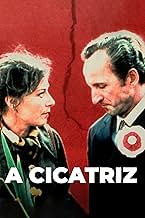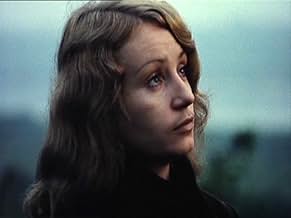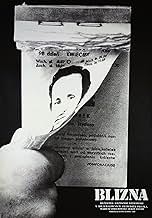अपनी भाषा में प्लॉट जोड़ेंWhen a political decision is made as to the location of a new large chemical factory, Stefan Bednarz is put in charge of it. This honest communist party man has to confront the local communi... सभी पढ़ेंWhen a political decision is made as to the location of a new large chemical factory, Stefan Bednarz is put in charge of it. This honest communist party man has to confront the local community opposing the construction.When a political decision is made as to the location of a new large chemical factory, Stefan Bednarz is put in charge of it. This honest communist party man has to confront the local community opposing the construction.
- पुरस्कार
- 2 जीत और कुल 1 नामांकन
- Hania
- (as A. Holland)
- Malgosia
- (as M. Lesniewska)
- Olecko Resident
- (as A. Lamtiugina)
- Architect
- (as R. Bacciarelli)
- Participant at the Chairman's Meeting
- (as B. Ejmont)
- Olecko Resident
- (as H. Hunko)
फ़ीचर्ड समीक्षाएं
He uses dubious photos of impoverished locals to convince his fellow local party flunkies that the town desperately needs jobs. Then he brings in the regional party hacks for lobbying, and has a bunch of locals stand outside the offices to show their support for the factory (it's implied they were actually told it was a demonstration AGAINST the factory).
And on it goes like this, with our main character being appointed from out of town, against his wife's wishes, to head up the project.
The project bulldozes a forest. The party flunkies condescend to the locals, with their social and ecological concerns. Our main character expresses his misgivings. But at no time does the project - a nitrate factory - ever slow down. It's all in service of The Party, you see.
The amazing this is, however, is that the theme of this movie transcends its time and place.
Think about Your Town, where the local billionaire sports team owner paid off the local town council so he could bulldoze a few downtown city blocks, get a new arena/stadium built at taxpayers' expense, and then spread the manure of ''revitalization" to sell the concept to the locals.
Billionaire gets richer. Councillors put their kids through college. Contractors get rich. Tradesmen get jobs for a couple of years. Poor people stay poor. And the town is left to clean up the social and ecological long-term damage.
Today, towns and states rush to built light rail transit projects. Rinse and repeat.
There's no ranting and raving or pounding of fists. No car chases or gun play. Just a man trying to navigate his way through a system. The genius is that this system persists everywhere, across all ideologies.
The director himself might have thought he'd made a bad film. Maybe in the immediate aftermath, with ambitions to do more polished work, he was justified in his self-criticism. But with the perspective of 50 years I'd say he turned out a timeless masterpiece. It makes anything cranked out by serial polemicist Michael Moore look like cheap home-made fluff by comparison.
Like as was said for 'The Calm' (a relatively obscure work and undeservedly so), 'The Scar' doesn't have an awful lot wrong with it, it's the sort of film that does almost everything correctly and with very good skill but it's also a case of Kieslowski's style and all his components (while present and correct here) became more refined later on. 'The Calm' does lack the intensity and emotional resonance of his later work, especially with the best 'Dekalog' stories, 'The Double Life of Veronique' and 'Three Colors: Red' and 'Blue'.
Maybe it does get a touch heavy-handed in places too (then again that was not unexpected with themes as heavy and controversial as hypocrisy, compromise and contradiction) and occasionally a touch jumpy.
Again, however, as was said for 'The Calm', these nit-picks are not massive and much of 'The Scar' works very well. It is a good-looking film, as well as being beautifully shot with atmospheric use of colour to match the mood, it is gritty yet beautiful with many thoughtful and emotionally powerful images lingering long into the memory. Kieslowski's direction is quietly unobtrusive, intelligently paced and never too heavy. Very intriguing use of sound and silence, music is sparsely used but effectively intricate.
It's a thought-provoking film too, rarely rambling and makes what it has to say stick. Much of the story is sensitively told and poignant (if not as much as Kieslowski's later work), hardly cold. While deliberately paced it intrigues, engaging a good deal while also suitably challenging the viewer in spots. The themes are explored well, though there are thematically richer films from Kieslowski, and the characters (portrayed fairly bleakly but realistically) carry the story well. As ever, the complexity and nuances of the acting is to be admired.
Overall, interesting and very good early Kieslowski, though he did go on to better things later. 8/10 Bethany Cox
Kieslowski himself called the film horrible. He criticized its screenplay and categorized the film as socialist realism. He probably saw something I can never be able to see; something that only the one who made the film could see. Blizna is a realistic film about a socialist society, but socialist realism was never even close to realism. It's full of that blind optimism which Stalin so idealized. But Kieslowski's film, Blizna, is incredibly pessimistic: it shows how socialism works, how it doesn't work, how it cannot work and how it's impossible for anyone to make a change in a society like that. However, one shouldn't feel that Kieslowski was a man cheering for individualism, market economy or economic liberalism. He always called himself unpolitical and criticism for the new, capitalist Poland can be seen in his later film Three Colors: White (1993).
Blizna is a story about a corporation which decides to build a new factory in spite of ecology, or the people living in the area. They choose a man with a family to lead the project. Quickly he reveals to be a man who takes responsibility and tries to finish the project with honor. He soon starts to see the flaws of the project, where moral is only one defect. In his journey through Machiavellist politics he finds making a change incredibly difficult.
The authorities of Poland didn't ban Blizna, but they treated it badly, and basically no one saw it until the producer of The Three Colours trilogy brought a bunch of films from Kieslowski's early career to the screen. Having seen Blizna today, it might have partly lost its grip, since it is tightly tied to its own time. The 1970's can be seen in just about everything: in the style, in the narrative, in the dialog and in the costumes. This isn't a bad thing, by any means, but Blizna certainly isn't a timeless classic. But what it is, is a good description of it's time. It shows how Poland worked in the 1970's under the socialist government; how it did not worked. Kieslowski said in his interview book, Kieslowski on Kieslowski by Danusia Stok, how sad it is that no one takes responsibility on what happened during the era -- not even today.
Blizna is very pessimistic and has got inconsolable despair. It shows how impossible it was to make a change in Poland and how hopeless the era was. To put it briefly, it's a satirical description of the authorities of Poland. It is funny, political, pessimistic and very interesting for those who love Kieslowski, European art-house or are interested in history of the 20th century.
क्या आपको पता है
- ट्रिवियाFirst ever theatrical film directed by Krzysztof Kieslowski.
- भाव
Stefan Bednarz: That's no way to live. You have to figure out what you want.
Stefan's Daughter: Is your life the way to live? A new job and home and friends every five years? I don't know. You've left Mom on her own. Is that a way to live?
टॉप पसंद
- How long is The Scar?Alexa द्वारा संचालित
विवरण
इस पेज में योगदान दें


































